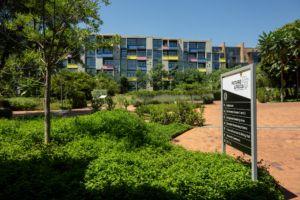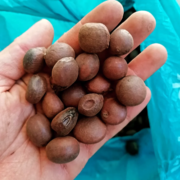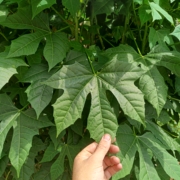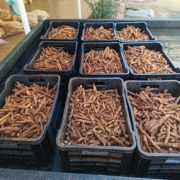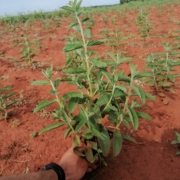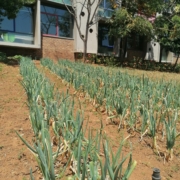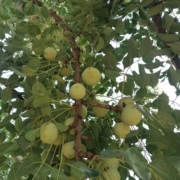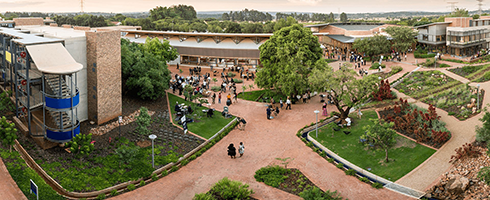Living Heritage: Future Africa’s Indigenous and Orphan Crops Collection
Every September, South Africa observes Heritage Month, culminating in Heritage Day on 24 September. The occasion celebrates the country’s traditions, cultures, and natural treasures that shape its identity.
This year, the Future Africa Indigenous and Orphan Crops Collection takes the spotlight, showcasing food heritage as part of this legacy. This specialist agrobiodiversity collection of the University of Pretoria(UP)’s Manie van der Schijff Botanical Garden, located largely within the Future Africa campus gardens, safeguards indigenous and underutilised crops. These plants carry centuries of resilience, knowledge, and cultural identity. They connect communities to ancestral practices while also offering pathways to future sustainability.
Curated by Richard Hay, with support from Jason Sampson (Head Curator: Manie van der Schijff Botanical Garden), the collection reflects the specialised work involved in maintaining and researching living agrobiodiversity. By protecting these crops, Future Africa ensures they remain available for scientific study, innovative research, and the benefit of communities for generations to come.
Preserving Our Food Heritage
The Future Africa campus gardens were designed around a philosophy of openness, sustainability, and connection between people, nature, and knowledge. Within this landscape, the Indigenous and Orphan Crops Collection is not hidden away in laboratories. It forms part of the living campus.
A walk through the gardens reveals a variety of plants indigenous to South Africa, each with its own story. Among them are:
-
Tsenza (Coleus esculetus), an edible tuber once thought extinct in South Africa after disappearing from local food systems. Rediscovered in isolated populations in the last two decades, it is now studied for its potential as a drought-tolerant crop.
-
uMondi (Mondia whitei), widely used in traditional medicine. The bark and roots have a distinctive vanilla-like flavour and are currently being tested with UP’s Department of Consumer and Food Sciences as a locally indigenous alternative to vanilla.
-
Marama bean (Tylosema esculentum), a legume native to African grasslands. The species forms large underground tubers that make it highly drought-tolerant. Both the seeds and young tubers are edible. Future Africa hosts one of the largest known specimens, recently transplanted into the grassland garden.
The gardens also feature indigenous trees such as the Marula (Sclerocarya birrea) and Baobab (Adansonia digitata). Herbs such as Rose pelargonium (Pelargonium graveolens) and Golden sage (Salvia aurea) are also preserved in the Collection.
Alongside these indigenous species, the Collection also includes crops not native to South Africa but identified for their potential in African food systems. These include Chaya (Cnidoscolus aconitifolius), a perennial leafy vegetable rich in nutrients, and onion varieties such as the Egyptian walking onion (Allium × proliferum) and the Perutile onion (Allium cepa var. perutile). Introduced through community engagement initiatives, these crops thrive in local conditions and show promise as easy-to-grow options for home and community food gardens.
Connecting with Communities
The Collection is not only about preserving plants. It is also about connecting with people. By working with backyard and community gardeners, farmers, and plant enthusiasts, it builds bridges between science and society. These partnerships highlight the role of indigenous and orphan crops in strengthening nutrition, building climate resilience, and supporting livelihoods.
Heritage in Action
As South Africa celebrates Heritage Month, the Future Africa Indigenous and Orphan Crops Collection stands as both a tribute to the nation’s food heritage and a commitment to its future. By preserving these crops and the knowledge they embody, Future Africa ensures that South Africa’s agrobiodiversity continues to nourish, inspire, and sustain generations to come.

